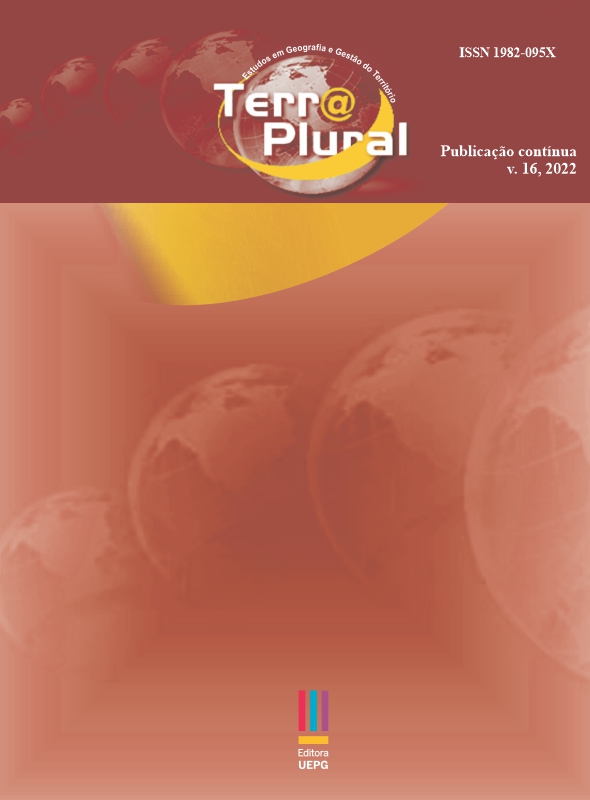Relationships between the Taboãozinho faxinal community in Prudentópolis (PR, Brazil) and the Pinheiro de Pedra geosite – appropriation and geoconservation
DOI:
https://doi.org/10.5212/TerraPlural.v.16.2221044.044Keywords:
Faxinal, Geodiversity, Geopark PrudentópolisAbstract
This paper discusses how the community of Taboãozinho has promoted the appreciation, dissemination, and conservation of paleontological heritage in its territory through the Pinheiro de Pedra geosite. The socio-spatial characteristics of the community in synergy with the geopatrimonial heritage and geoconservation give the tone of the singularity of the natural landscape and its territory. Through bibliographic and documental surveys, participative diagnosis, and interviews with local people, we identified factors that point to the process of cultural appropriation of the geosite by the community. We detected that the care with the fossil logs and the maintenance of the collection of legends, stories, and cultural manifestations about the "stone pines" are actions that culminate with the protection of heritage and its dissemination. Based on this study, educational and cultural valorization actions were promoted in partnership with other organizations, enabling advances in the development of geotourism and appreciation of the region's cultural heritage. The historical knowledge of the presence of fossil trunks, associated with legends, stories, and cultural manifestations about the "stone pines", in addition to actions of care and conservation of the heritage are factors that point to a process of cultural appropriation by the community with the geosite.
Downloads
Downloads
Published
How to Cite
Issue
Section
License
Copyright (c) 2022 Carlos Alexandre Rogoski, Tiago Augusto Barbosa, Antonio Liccardo

This work is licensed under a Creative Commons Attribution-NonCommercial-NoDerivatives 4.0 International License.
Revista Terr@ Plural will obtain the auctorial rights for all published texts. This also implies that the text can be published anywhere in the world, including all rights on renewal, expansion, and dissemination of the contribution, as well as other subsidiary rights. The authors get permission to publish the contribution in other media, printed or digital, it may be in Portuguese or translation since the publication is credited to Revista Terr@ Plural. It allows the self-archiving of published articles in institutional repositories, thematic repositories, or personal web pages in the pdf version downloaded from the journal's site.















